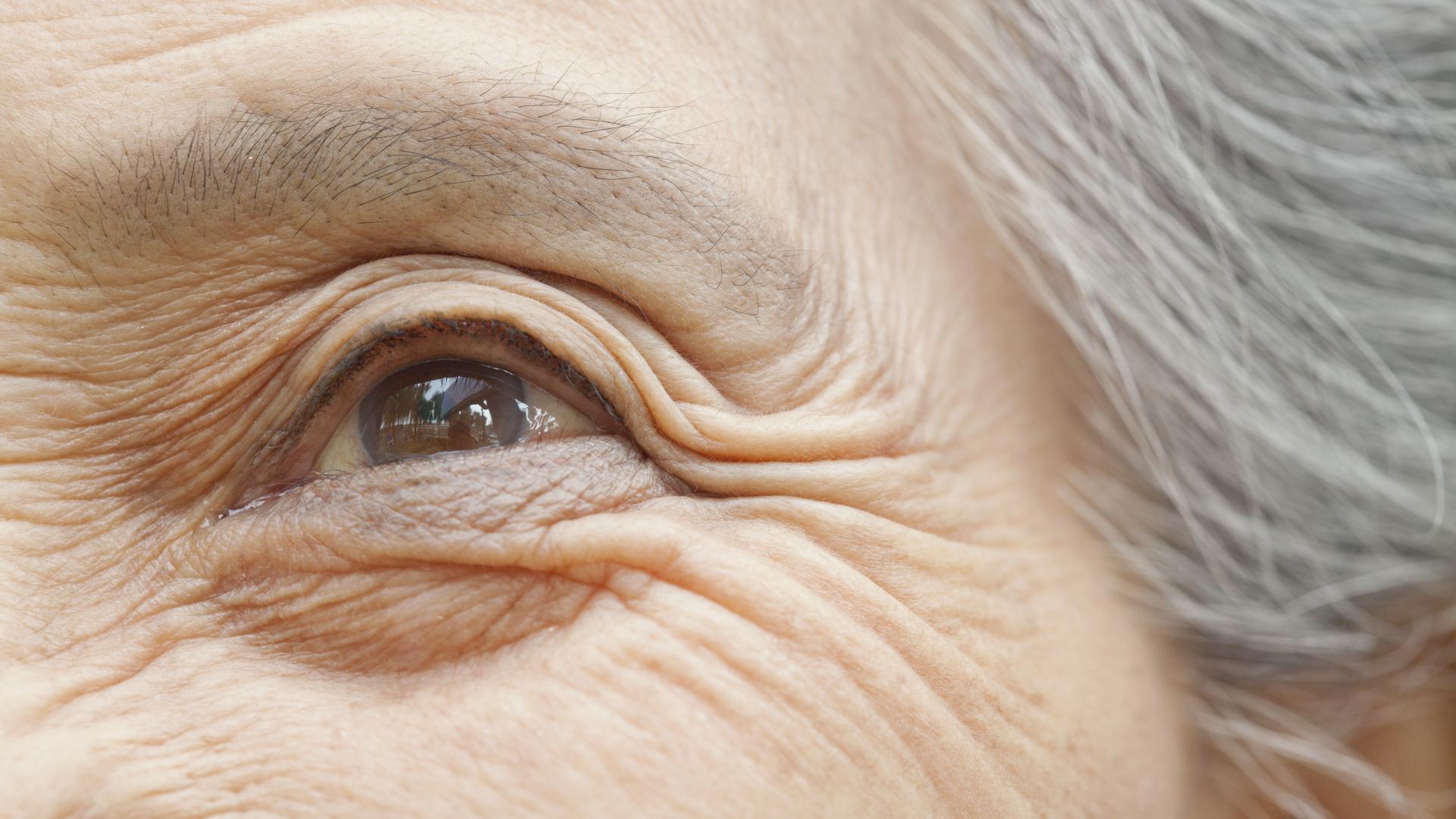Age-Related Macular Degeneration: Your Questions Answered (March 2018)
Featuring
Priyatham S. Mettu, MD
Duke University Retina Specialist


Priyatham S. Mettu, MD
Duke University Retina Specialist

The guest speaker is Priyatham S. Mettu, MD, a Duke University retina specialist who is testing new treatments and new imaging technologies for age-related macular degeneration.
MICHAEL BUCKLEY: Hello, I’m Michael Buckley with the BrightFocus Foundation. Welcome to today’s BrightFocus Chat: “Age-Related Macular Degeneration (AMD): Your Questions Answered.” If this is your first time on a BrightFocus Chat, welcome, and let me take a moment to tell you about BrightFocus and what we’ll do today.
BrightFocus funds some of the top researchers in the world. We’re funding scientists all over the globe who are trying to find cures for macular degeneration, glaucoma, and Alzheimer’s. We share the latest findings from these scientists and other best practices with families that are impacted by these diseases. We offer a number of free publications and plenty of materials on our website, www.BrightFocus.org, and today’s BrightFocus Chat is another way of sharing this information.
Let me tell you about today’s Chat, “AMD: Your Questions Answered.” We’re really fortunate to have one of the leading vision researchers in the country join us today. His name is Dr. Priyatham Mettu, and Dr. Mettu is at Duke University. He’s a retina specialist, and his research involves testing new treatments and imaging technologies for age-related macular degeneration. He sees patients in the clinic at Duke University, and a few years ago, Dr. Mettu was a recipient of a BrightFocus research grant to study some of these aspects of macular degeneration.
So, Dr. Mettu, thank you very much for joining us. I think you were a part of a BrightFocus Chat a couple years back. I was wondering if we could just start with you telling our listeners what you do and why you find this type of research and practice interesting.
DR. METTU: Well, Michael, thank you very much, and I’m pleased to be here. Thank you for the opportunity. I’m a clinician and a scientist. As you mentioned, I do, as a retina specialist, take care of patients with age-related macular degeneration and diabetic retinopathy, as well as other macular diseases, here at Duke University. And when I’m not in the clinic, I am in the laboratory, and my research spans both, actually, the laboratory and clinical research.
My work is focused on trying to understand the mechanisms of disease for wet macular degeneration that doesn’t respond well to the available anti-vascular endothelial growth factor (VEGF) shots that I know many of our listeners who have macular degeneration receive. My focus is primarily on trying to identify those mechanisms and perhaps unearth new targets that allow us to develop new and more effective treatments. My clinical trials are really focused on trying to test out some of the novel treatments that are being evaluated for macular degeneration, diabetic retinopathy, and other macular diseases.
MICHAEL BUCKLEY: Great. Thank you very much for that overview. As Dr. Mettu mentioned, injections are a common treatment for folks with AMD, and so, not surprisingly, we have several questions about these injections. The first is, what are some of the most common side effects of getting injections over a long-term basis?
DR. METTU: It’s a great question. We know that, on a short-term basis, the main side effects that patients can get are typically related to the injection, and that might involve a little bit of short-term discomfort at the site of the injection or a little bit of redness or bleeding. The fortunate thing is that if we’re talking about the health of the eye, the side effects of long-term, sustained treatment are actually quite favorable. For most patients, the treatment with the shots—anti-VEGF shots—for many years is safe and very well tolerated. These medications have been around now for about 12—over 12 years, and all of the available data looking at patients who’ve had treatment for 7 to 10 years suggest that patients can receive these injections with very few ill side effects.
MICHAEL BUCKLEY: Well, thank you. As you can imagine, another question says, is there any new research that would eliminate what this person calls “the dreaded needle?”
DR. METTU: Well, also a very good question. I think that hits to an unmet need of treatment burden—the burden on our patients, who have to come in very frequently for shots; on their family members, who have to take a day off of work to come in; and, in some respects, even for our retina doctors, who are trying to manage a busy practice of patients that do need these frequent shots.
The good news is that I think on the horizon there are going to be a host of new treatment opportunities, specifically around extended-release treatments. So, the mechanism of action will be similar to some of our currently available treatments, but they’ll last longer. The goal would be that instead of having to come in every month for a shot, you may come in once every 6 months to get a shot. That doesn’t quite take away the needle, but at least it decreases the frequency of it. There’s also other initiatives to try to develop eye drops to treat the disease, and those are still in the very early stages, so it remains to be seen whether that could be an effective treatment approach.
MICHAEL BUCKLEY: That’s a really interesting answer. I like your expression “treatment burden,” because it captures what’s difficult for families but also health care practices and the health care system, and I appreciate the sense of optimism there. One other question we have related to shots is—the person says, “What happens if I stop getting the injections?”
DR. METTU: Yeah, it’s a great question. We now have multiple studies looking at how your patients do with varying levels of injection frequency, and I think the biggest problem facing our patients is actually under treatment, meaning that they’re not actually getting enough shots. So, all of the studies now show that, on average, patients need between six to eight shots a year. Some patients may need fewer, some patients more, but that it’s a long-term sustained treatment is important for disease control. When you stop the shots, for the vast majority of patients that increases the risk that vision loss will happen either gradually over time or could happen suddenly in the event of having a significant bleed inside the eye. So, maintaining a regular schedule of treatment to suppress the disease is critically important for maintaining long-term good vision.
MICHAEL BUCKLEY: We just got another listener question about these injections. How do you, as a clinician, know what is the right frequency—the right amount of intervals—for which a person should return to get shots? Is that something that varies by person? How do you reach that suggested cadence?
DR. METTU: So, our goal is really to make the disease go dormant with treatment. By “dormant,” that means that it’s not active, there’s no fluid leakage, there’s no sign that the blood vessel that snuck up underneath the retina—that’s sort of the hallmark of the disease—there’s no sign that that blood vessel is getting bigger, and there’s no sign of bleeding. And so, our strategy is typically to inject once a month for the first 3 months and then reevaluate and say, “Have we completely suppressed the disease activity, or is there still active disease?” If we’ve suppressed the disease activity, we can begin to gradually extend the interval between shots. That approach that’s used by most retina specialists is called “treat and extend,” and the goal is to treat and try to extend the interval between shots.
If, at the end of the initial three treatments, there’s still active disease, then we have to consider alternative approaches, and that varies by retina specialists. Sometimes it’s switching to one of the other available anti-VEGF medications, sometimes that’s adding in adjunctive treatments, like certain types of laser treatments—some retina practitioners utilize that as an adjunctive treatment. I and some of my colleagues here at Duke are among that group. So, the long-term goal really is to try to use just enough treatment to suppress the disease and manage the treatment burden.
MICHAEL BUCKLEY: One more question on injections and then we’re going to move on to some dietary questions. We have a listener who’s wondering, should someone with dry AMD get these injections?
DR. METTU: The short answer is “no.” The shots really only are effective for wet macular degeneration, and they don’t really help dry macular degeneration. There are some folks who wondered, well, could you prevent wet macular degeneration? And in theory that would be possible, but we know that it’s only a small percentage of people that actually—of the total population of dry macular degeneration patients—that develop wet macular degeneration. So, if you took that approach, you’d be treating a lot of people needlessly and exposing them to the burden associated with frequent shots just to do that, and so it’s really not an efficient approach both from a population standpoint and for the individual patient.
MICHAEL BUCKLEY: Great. I appreciate that. So, turning to diet, we have a number of people who have questions about the connection between what you eat and how you see, and I guess we’ll start with the big picture question: What type of foods should someone with AMD be eating?
DR. METTU: That’s a good question. I think that the good news is that you’re not going to hear advice from me that’s different from what you might hear from your regular doctor or that you might hear from a heart doctor, a neurologist, or a stroke doctor. Really, the main kind of dietary focus should be around a diet that’s rich in green leafy vegetables; healthy fruits that are not necessarily high in sugar; lower fat, so, reducing the unhealthy fats in the diet and maybe focusing on healthier fats like the fats you might have in salmon, for example; and really combining that with exercise. And so, from a dietary standpoint, those sort of general recommendations, I think, are really consistent with what’s important for overall health.
MICHAEL BUCKLEY: Great. I appreciate that. We have a listener who’s wondering, should they avoid vitamin A—as in “apple”—should they avoid vitamin A in the foods that they eat?
DR. METTU: I don’t think it’s necessary to avoid vitamin A. We know that actually vitamin A is part of the AREDS vitamin supplements, so when taken at a certain level of dosage, it’s actually part of a cocktail of vitamins that can be helpful. Mega doses of vitamin A, which you could really only achieve through taking vitamin A supplements, may not be healthy and could potentially cause harm, but I think it would be very difficult to do that through just regular foods. I don’t think it’s necessary to avoid vitamin A in foods unless there’s something specific about your health or condition that you or your doctor might be aware of.
MICHAEL BUCKLEY: Thank you. And another question we have, Dr. Mettu, is, does alcohol affect AMD?
DR. METTU: There are some studies looking at how alcohol consumption influences macular degeneration, and there’s really not conclusive data that suggests that moderate or even high alcohol consumption increases the risk. There’s some epidemiologic data that suggest a weak association, but it’s not conclusive.
My general advice to my patients is to just think about it in terms of their overall health. I mean, we know that drinking alcohol in excess is not good for your overall health and specifically can cause things like liver damage, and so that’s not such a great idea. Alcohol in moderation—one or two glasses of wine per day—is not unreasonable if that’s something that you and your doctor feel like is allowable, given your health condition. But there’s also, on the flip side, no data that suggest that necessarily that is helpful. So, I think, really, following the general recommendations for alcohol consumption is kind of appropriate for thinking about it in the context of macular degeneration.
MICHAEL BUCKLEY: Well, thank you. One more question that is related to medications. We have a listener wondering if there’s any correlation between the use of the medicine Ambien and macular degeneration.
DR. METTU: I’m not aware of that, and to my knowledge, there’s no specific association between the use of Ambien and the development of macular degeneration. To sort of take a step back and think about it in terms of, in general, are there specific medications that you have to be concerned about? I think the short answer is not so much. I think that we have to think in terms of what are things that potentially potentiate the disease? So, there are not too many medications that really rise to the top of the list as raising a level of concern. One thing that sometimes comes up is Coumadin, or warfarin, or other blood thinners. Sometimes that can be at least a concern for patients with wet macular degeneration because those patients are at risk for getting bleeding inside the eye. So, what I usually discuss with patients is that the important thing is that they are being monitored by their doctor about their use of blood thinners and at least making sure that their doctor feels like it’s necessary for them to do that for their systemic health; that’s what comes first. But, I think it’s important for the patients to let their eye doctors and their retina specialists know that that is one of their medications, because it does at least heighten our awareness to the potential risk of bleeding.
MICHAEL BUCKLEY:That’s a really important point. Thanks for that. I want to just stay on that topic of informing your physician about other medications and conditions. In your experience as a clinician, do you have any guidance for us about how someone can make the most out of their doctor’s appointment?
DR. METTU: Yeah, great question. Many times, patients are referred to a retina specialist by their main eye doctor or by another doctor, so I think the first step is to just make sure they bring in-hand any prior records of prior evaluations, imaging, or treatment. That’s often helpful to inform the current state of your disease and help your doctor give you an informed opinion about what’s best for you. And then I think in other cases, if you’re going to the doctor for the first time and you’re just—someone has raised the possibility that you might have macular degeneration or that you might have a retina problem, I think the main thing there is just to really focus on the question. If there’s any questions that you know that you have, jot those down, because there will be lot of information coming to you, and in that moment, it can be difficult to remember everything you want to know. And then, just realize that many times when you’re a patient, you’re getting information for the first time, and it can hit you all at once. And it’s important to give yourself time and space to process that, but then it’s also important at the end of your visit to ask, “Okay, did I really understand everything that they told me?” And if you didn’t, then I think it’s important in that moment to say, “Okay, well, here’s what I wasn’t sure about; could you tell me more about this, could you give me some more information about that?”
Having that dialogue, I think, is important because it allows us as the doctors to know where you’re coming from and to know the things that are of greatest concern to you, and I think that’s most important—kind of giving yourself that space to process that information but also making sure that, before you leave, you feel comfortable about what you’ve heard and what you understand.
MICHAEL BUCKLEY: Well, thank you. That’s really helpful. And just staying on those good points for a second, we have a few questions here about clinical trials. I’m wondering, when you talk with your patients about trials, what are some of the key points you make, or what are some of the key questions [of] someone who is learning about clinical trials?
DR. METTU: I think the first question to ask your doctor is, “Tell me about my stage of the disease, and how would you classify it? Am I in the early stage of the disease, am I in the advanced stage of the disease? And based upon that, what can I expect going forward?” And then once you understand that part, I think then the next question is really just to say—and this is specifically true for dry macular degeneration, since there aren’t any available treatments—“Are you aware of any available trials or anything on the horizon?”
We’re fortunate in that we are at a time when there are a number of biotech and pharma companies that are trying to test and develop new drugs for dry macular degeneration. They should be able to highlight to you, given your stage of disease, what are the potentially available trials that are out there and whether you might be a good candidate for them. And then the other question is, if they are not directly participating in trials, are they aware of where, where are some of their colleagues located who might be participating in some of those studies?
I think the other thing to think about is just, logistically, what’s the commitment? Many trials require patients to come in once a month for up to 2 years, so as you begin to evaluate specific trials and whether or not that’s a good fit, the first step is just saying, “Is this something that I could commit to?” The other thing to think about is, how is this study structured? Will everybody in the trial be getting an active drug that’s being tested—so you know you’ll be getting a drug—or will it be what’s called “placebo control,” meaning half the patients will get the active drug, half the patients will get basically a control that doesn’t have the drug? And just understanding that from the outset will help you to understand—help you to feel whether or not that’s a good fit for what you’re looking for.
MICHAEL BUCKLEY: Those are all real good points. Dr. Mettu, I’m going to turn to a couple of questions here about lifestyle, and I think it’s interesting. The advice that you give about healthy living is similar to what people are probably hearing from other physicians in their life. So, we have someone who asked about if you want to play tennis or walk or bike outside. Are there any AMD risks from being active out in the sun?
DR. METTU: No, the good news is that being outdoors and being active is actually a positive. Regularly scheduled exercise and activity is positive for overall health and it’s a positive for the health of your eyes, as well. So, I don’t think there’s any specific concerns with that.
MICHAEL BUCKLEY: A particular type of sunglasses people should wear? I always find that the different letters and numbers associated with sunglasses can be a little overwhelming. Do you have any guide to help people?
DR. METTU: I think there is some thought that, with sun exposure, that UV light, or blue light, could have some effect as a risk factor for the disease. That’s still an open question; there’s not complete agreement around that. That being said, I advise my patients that it can’t hurt to basically be appropriately cautious and have sunglasses when you’re out on a bright, sunny day. So, I think sunglasses that have some degree of UV blocking is potentially helpful. That also has to be balanced, though, against the tint of the glasses. So, we know that many patients with macular degeneration have difficulty seeing under low-light conditions, so one of the questions that comes up often is, “Should I get what’s called transition lenses—the glasses that will darken when you step outside and lighten up when you come inside?” It can work for some folks, but one of the challenges is that sometimes those glasses can stay dark, even under lower lighting conditions and that can make it harder to see well if the lighting in the room isn’t optimal.
MICHAEL BUCKLEY: You anticipated the next question we had from a caller who was wondering about interior light. Is there any particular type of lighting level or types of light bulbs in an interior setting that are best for patients with AMD?
DR. METTU: I think the right lighting or the right level of light is whatever you feel helps you see and function optimally. But, I think it can’t be overstated that in a home that—if your home has fewer windows and you don’t have sufficient lighting, that can definitely make it difficult to be able to see well around the home, and it can create some issues for mobility. It can also just sort of make it harder to function optimally. And so, I think making sure that the rooms in your home are well lit and that you’re comfortable with what you’re able to see, given the level of lighting, is important.
MICHAEL BUCKLEY: And a final question on lighting. We had a caller wondering about a particular type of glasses that they should wear while working on a computer or a tablet or watching TV. I know you mentioned blue light a minute ago. Is there any type of precaution or best practice for screen time?
DR. METTU: Nothing specific. I think the major issue that arises is really just finding glasses that have appropriate strength for intermediate working distance, particularly if you’re looking at a computer screen, so that’s the first consideration. And then, I’m not as concerned with the ambient light coming from the screen in most cases; that’s generally not posing a significant risk. So, whatever works best for the individual.
MICHAEL BUCKLEY: Great. Thank you. Dr. Mettu, we had a listener ask, is AMD genetic? More specifically, is it something that their children should be worried about?
DR. METTU: There are definite genetic risk factors for age-related macular degeneration. Typically, when we think about a genetic disease, we think about, well, my grandmother had it, my mother had, my aunt had it, and I’m going to have it. Well, the genetics for macular degeneration don’t quite work like that. Really, we know that there are certain genetic factors that increase the risk of getting the disease. It doesn’t mean that because you have that genetic signature that you’re going to get the disease, but it’s one extra mark in your overall risk profile for the disease. We’re still trying to understand more about how that genetic risk actually impacts the disease process, but it’s really more about how it affects your overall risk profile for the disease.
MICHAEL BUCKLEY: You mentioned some of the research going on about genetics. We had a simply phrased but very important question from a listener who asks, is there any hope for a cure for AMD?
DR. METTU: I don’t think there’s going to be cure, because I think that this is a complex disease that is affected by genetic risk factors, by lifestyle factors. We didn’t mention it, but probably one of the biggest lifestyle factor increasing the risk of macular degeneration is smoking and tobacco use. We know that it’s basically a disease of environmental exposures, lifestyle, as well as some degree of genetic risk factors. So, since it’s a complex disease, there’s probably not going to be a single drug or a single treatment that will cure the disease.
That said, I think there is a lot of promising research that suggests that we’re understanding more about the disease mechanisms. I can envision a time 5 years from now where there may be a treatment for patients with dry macular degeneration and maybe 10, 15, or 20 years from now where we’re talking about really a combination of different treatments with different mechanisms or different ways that work to either slow the disease or boost vision for affected patients.
You can kind of think about it like the current situation for high blood pressure. Many years ago, there weren’t treatments for high blood pressure, but now we have three, four, five, or six different options of different types of treatment. So, that would be the ideal: that we begin to understand more about the mechanisms and we can offer a variety of treatments that affect the disease in different ways.
MICHAEL BUCKLEY: I appreciate that. Dr. Mettu, I want to conclude by thanking you so much both for your great research that you’re doing in the lab and with patients in your clinic and taking the opportunity today to address a wide range of really interesting questions. Do you have any big-picture advice for people who have AMD or their families from your experience in the clinic and in the lab?
DR. METTU: Absolutely. I think the main thing I would say is that we know that the disease, even at the early stages, can have a profound effect on patients’ vision and visual function, and it goes without saying that having regular care from a doctor that you have an established relationship with and that you trust and you feel like you’re getting thoughtful care from is critically important. But I think the other side of it is to really kind of get a sense of how your visual function is on a day-to-day basis, and beyond the doctors who monitor the disease, there are a wealth of resources from visual aids to low-vision clinics and a number of different strategies to try to maximize day-to-day vision for one’s lifestyle.
I think that as we understand more about how visual loss or visual limitation affects our patients’ day-to-day lives, we really need to have a focus on how to combat that so we can have patients who are remaining as active as they can, staying social and engaged with their communities, and also being able to stay connected to their families and loved ones. And I think that’s something that’s incumbent not only on patients and our families to strive for that and want that, but also us as providers to recognize and try to deliver.
MICHAEL BUCKLEY: Well, thank you. That’s really helpful. I think that touches on a lot of the great things for people to consider—the multifaceted nature of a disease like this in terms of lifestyle and caregiving and taking advantage of a lot of the resources that, as you say, are available in communities across the country. So, Dr. Mettu, I just want to thank you on behalf of BrightFocus. I really appreciate your time and your great advice today.
DR. METTU: Well, thank you, and it’s a pleasure to be here.
MICHAEL BUCKLEY: And to our listeners, you can always call BrightFocus toll-free at (800) 437-2423. You’ll find a lot of materials about macular degeneration, glaucoma, Alzheimer’s disease, resources for caregiving at our website, www.BrightFocus.org, and I appreciate your joining us today and I hope to talk with you on our next chat.
BrightFocus Foundation is a premier global nonprofit funder of research to defeat Alzheimer’s, macular degeneration, and glaucoma. Since its inception more than 50 years ago, BrightFocus and its flagship research programs—Alzheimer’s Disease Research, Macular Degeneration Research, and National Glaucoma Research—has awarded more than $300 million in research grants to scientists around the world, catalyzing thousands of scientific breakthroughs, life-enhancing treatments, and diagnostic tools. We also share the latest research findings, expert information, and resources to empower the millions impacted by these devastating diseases. Learn more at brightfocus.org.
Disclaimer: The information provided here is a public service of BrightFocus Foundation and is not intended to constitute medical advice. Please consult your physician for personalized medical, dietary, and/or exercise advice. Any medications or supplements should only be taken under medical supervision. BrightFocus Foundation does not endorse any medical products or therapies.

In recognition of National Caregivers Month, this episode explores the vital role of those who support individuals living with vision loss—whether family members, professionals, or volunteers.

Dr. Jeffrey Stern and Dr. Sally Temple, Principal Investigators and Co-Founders of the Neural Stem Cell Institute, will explain what stem cells are and share the latest updates from clinical trials.

Join Dr. Sara Fard, a retina specialist at Illinois Retina Associates, as she explains the benefits of sustained GA treatment, including slowing the rate of vision loss, protecting retinal tissue, and supporting daily visual function.

Dr. Diane Bovenkamp highlights several of this year’s groundbreaking projects and explain how they’re driving progress in early detection, risk reduction, new treatments—and ultimately, a cure.
Help Fight Macular Degeneration and Save Sight
Your donation helps fund critical research to bring us closer to a cure for this sight-stealing disease and provide vital information to the public.
Donate Today